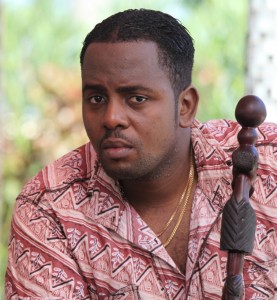by Ben Taylor
Hero of southern African liberation battles, Brigadier-General Hashim Mbita, died at Lugalo Military Hospital in Dar es Salaam, in April, aged 81.
Mbita’s most prominent public role was as Executive Secretary of the Liberation Committee of the Organisation of African Unity (OAU) Liberation Committee executive secretary. The committee had been hosted in Tanzania, and offered support to African liberation movements in their fight for independence.
He served for 22 years from 1972, stepping down after the first democratic elections were held in South Africa in 1994. “Mission Accomplished” was the title of his statement to the meeting in Arusha that marked the closure of the Liberation Committee.
He also served in various leadership capacities, including army officer with the Tanzania People’s Defence Forces (TPDF), press secretary to the country’s founding president Mwalimu Julius Nyerere, and a politician.
His efforts earned him the highest recognition around Southern Africa. President Robert Mugabe awarded him the Royal Order of Monomotapa, the country’s highest honour available to non-Zimbabweans, bestowed to those who excelled in the struggle for the liberation of Zimbabwe and other southern African countries. South Africa bestowed on him the Order of the Companions of OR Tambo, for his “exceptional and gallant support of African liberation movements and his tireless efforts in ensuring that the struggle for freedom throughout the African continent bore fruit.” He was honoured by the Southern African Development Community (SADC) with the Sir Seretse Khama Medal, and by the African Union with its first “Son of Africa” award.
Nevertheless, he wore his medals lightly, never one to seek out publicity or attention.
“There are few people in this country who we can compare with Brig Gen Mbita; he was a man of his own kind who served this country for a long time and in all that period, he executed his duties ably and diligently,” said President Kikwete. “There was no freedom fighter in Angola, Zimbabwe, Namibia, Mozambique and South Africa who did not know the immense contribution made by Mbita.”
Tanzania’s Chief Sheikh, Mufti Issa bin Shaaban bin Simba, died in June at the TMJ Hospital in Dar es Salaam where he had been undergoing treatment for kidney and bronchial complications.
Dar es Salaam Chief Sheikh, Alhadi Mussa Salim, told reporters in Dar es Salaam that the Mufti had undergone surgery the previous day but did not recover.
The late Sheikh Simba became the Mufti of Tanzania in 2003 after acting in the post for 3 months following the death of the then Mufti of Tanzania, Sheikh Hemed Bin Jumaa in 2002. Prior to this, he had been Chief Sheikh of Shinyanga Region since 1970.
As death is inevitable for every human being, we have to accept it. It’s our responsibility to pray for Sheikh Simba so that he rests in peace,” said President Kikwete in a condolence message.
National chairman of the opposition party, Chadema, Freeman Mbowe, said “the Mufti has been heard several times saying that he is not the leader of Muslims alone but all believers. I join other Muslims in the country during this difficult moment as we mourn the death of their spiritual leader.”
Mr John Nyerere, the son of Tanzania’s founding father, Mwalimu Julius Nyerere, has died in Dar es Salaam, aged 58. He had been battling with diabetes. The late John Nyerere is survived by nine children. He was the fourth of Mwalimu Nyerere’s seven children. He will be remembered for his contribution during the Kagera War in 1978-9 when he served as a Tanzania People’s Defence Force fighter jet pilot.

